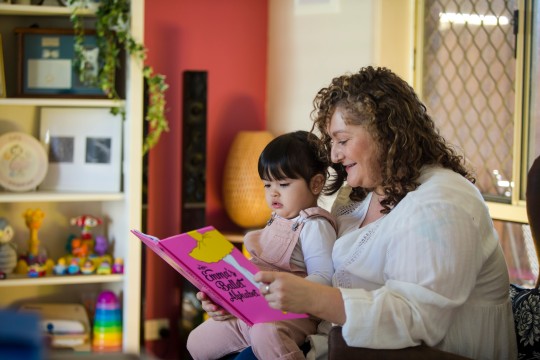
A love of reading begins at home
2 August 2022 | State Library of Queensland
You are your baby’s first and most important educator. It’s the example you set and the environment you create for your children that has the biggest impact on their life.
Here are some ways you can create a literacy rich home environment where reading, writing, and talking are a natural part of everyday life.
Make reading with your children a daily priority. Choose your own special time for reading, like bedtime or after naptime, turn off the tv, snuggle up and enjoy spending quality time together. Your children will look forward to it and hopefully model this routine throughout their lives.
Your children will learn reading habits from you, so let your children see that you find reading an enjoyable and exciting activity. Show them that books make you laugh out loud, get totally absorbed, excited, serious, or better informed. Encourage them to get Involved when you refer to dictionaries, cookbooks, atlases, manuals and catalogues and newspapers to find information you need. Read out things that might interest them, like the discoveries from the new James Webb telescope or a fact about a place you went on a family holiday.
Show that writing is something we create as well as consume by writing lists for groceries or Christmas shopping, writing birthday cards, reminder notes, labels on boxes, and names on schoolbooks. Talk about how writing serves a range of purposes like communicating our thoughts and feelings, reminding us of events, and organising and recording. Record your children’s height on a wall with the date and watch the marks go up!
A literacy rich environment home gives children the best opportunity for learning to read and to love books and reading. Modelling your own love of reading shows them that reading is important to you and helps make it important to them.
Comments
Your email address will not be published.
We welcome relevant, respectful comments.